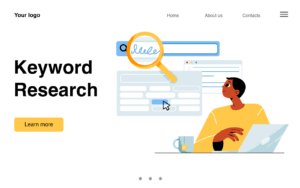Procuring a bank loan is one of the most reliable ways to raise funds to start a business or expand an existing venture. A bank loan is desirable for businesses with impressive credit scores and annual revenue.
However, there are several pitfalls to navigate when scouting for a business loan. Understanding these challenges can improve your chances of finding a suitable lender and getting approved for the required amount.
This article will highlight the top ten must-know tips to secure a business loan and grow your venture.
- Pick the Right Business Loan
Business loans come in many categories. It’s important to understand the perks and drawbacks of each loan type to be able to pick the best option for you.
For instance, you might consider commercial property loans if you’re in the real estate industry. These are essentially credit facilities designed to fund non-residential properties.
Most entrepreneurs procure commercial property loans to fund the construction of business premises. You could also obtain these loans to undertake major office renovations or even to refinance a non-residential property.
There are dozens of other types of business loans, including SBA loans, invoice financing, and equipment loans.
- Decide Between Secured and Unsecured Loans
Secured loans are loans you can obtain without putting up an asset as collateral. The converse is unsecured loans.
Secured loans are a preferable option for established firms with plenty of assets to collateralize. These loans also generally provide higher lending amounts and competitive interest rates.
Meanwhile, unsecured loans are ideal if you have no collateral to pledge. With these arrangements, you don’t have to fear getting your business assets seized in the unfortunate event of a default.
- Prioritize Lenders That Offer Both Secured and Unsecured Loans
Most banks provide either secured or unsecured loans. However, experts recommend lenders that offer both products.
For instance, the Small Business Administration (SBA) guarantees unsecured loans up to $25,000.
If properly utilized, $25,000 can help fund various business operations as your venture slowly takes off. Once you have an asset to collateralize, you can then apply for higher loan limits.
- Choose Your Collateral Wisely
It could happen that the best lenders available only offer secured loans. In that case, it’s imperative to pick your collateral wisely.
Do not pledge an essential business asset, without which your company’s operations would halt. Rather, choose a collateral that you can afford to lose.
More importantly, the asset’s value should be commensurate with the borrowed amount.
- Work On Your Credit Score
A credit score is one of the first things a lender will check before prequalifying you for a loan.
Strive to maintain a score of at least 620. Higher credit ratings give you more favorable lending terms, such as bigger lending amounts and lower interest rates.
There are several tips to improve your credit score. The most important one is to always repay your loans on time.
- Understand Your DSCR Score
Debt service coverage ratio (DSCR) is another key element that potential lenders examine before advancing credit facilities.
To compute your DSCR, divide your net operating income by your net debt service. Net debt service comprises the amount you’d pay toward the loan’s principal and interest.
A DSCR score higher than 1.5 is generally acceptable by most lenders.
- Understand a Lender’s Average Loan Limit
Different banks provide different average loan sizes.
So, after hunkering down on a couple of potential lenders, compare their maximum lending limits. This is particularly important if you’re seeking significant funding.
The SBA has an average loan size of $417,316. Note that the agency can guarantee qualifying borrowers up to $5 million. However, it typically caps its loans between $350,000 and $500,000 to minimize the risks of default.
- Know That Interest Rates Vary
Not only do banks differ in their maximum lending amounts. Their interest rates can vary significantly as well.
According to the SBA, the average interest rate for business loans staggers between 2.54% to 7.01%.
However, low interest rates alone don’t speak to a lender’s suitability.
Many banks will impose lower rates on shorter repayment periods.
You can extend the repayment period by several years. But that flexibility comes with high interest rates.
- Repayment Periods Can Vary Significantly Too
Business loans can be due from a few weeks to several years. It all depends on the loan type, borrowed amount, and other credit considerations.
For instance, loans like invoice financing are typically repayable within a few months. That contrasts equipment loans, which may take up to five years to service.
As we’ve just hinted, a longer repayment period provides better flexibility but comes at an extra cost.
- Service Existing Loans Before Seeking Another
It’s understandable to owe one or two lenders, provided that you’re making genuine efforts to repay your debts. But if possible, settle all outstanding loans before seeking another business loan.
Debt consolidation is an effective strategy you can implement to repay multiple loans.
It’s easier to qualify for additional business loans if you’re presently servicing only one loan than several. Besides, consolidating your debts can drastically improve your credit score.
11. financing options
Many businesses exploring financing options also benefit from strengthening their financial planning and operational efficiency. Working with trusted partners like BakerIng can help companies better understand their financial structure and make more informed decisions before pursuing a loan. By improving internal processes and ensuring accurate financial insights, business owners are better positioned to meet lender requirements. This type of preparation often leads to more favorable loan terms and a smoother approval process.
Final Word
Implementing the above strategies can help accelerate your access to business loans. As a parting shot, remember to define your business’ needs before applying for a loan. And when the loan is eventually granted, be sure to utilize it strictly for the predetermined purpose.













